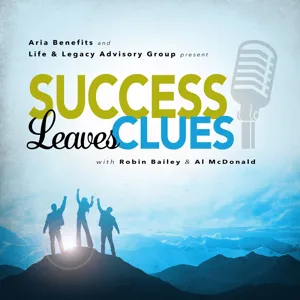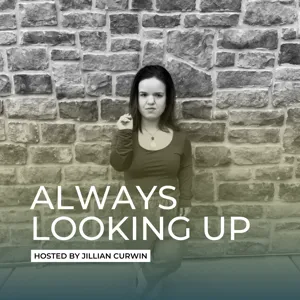Podcast Summary
Hydro panels: A potential solution for global water scarcity.: Hydro panels, developed by Cody Friesen, could address water scarcity by harnessing sunlight and air to create drinking water, providing a sustainable and renewable solution for communities worldwide.
Water scarcity is a pressing global issue that affects a third of humanity without access to safe water at home. Cody Friesen, founder of source, developed hydro panels that use sunlight and air to create drinking water, offering a potential solution to this problem. The technology has the potential to provide fresh, clean drinking water to communities around the world. With the cost expected to decrease and water production to increase as the technology improves, this innovation could have a significant impact on water accessibility. Additionally, addressing water scarcity is crucial for living in a more sustainable and earth-aligned way, aligning with the broader goal of renewable energy solutions.
The overlooked potential of renewable water sources: Despite our focus on renewable energy, the concept of renewable water sources has been largely neglected, hindering efforts to ensure safe and accessible water globally.
Water is a critical and personal resource, yet we have not found a global solution to ensure its safety and accessibility. Many people in the United States rely on well water, with a significant number facing quality issues. This problem is not limited to the US, as many regions lack infrastructure for clean water. While we have focused on finding renewable sources for electricity, such as solar and wind, the concept of applying renewable principles to water has been overlooked. Just as renewable energy sources are abundant and inexpensive, there is potential to generate fresh water from existing abundant sources like sunlight and air.
Harvesting Atmospheric Water: A Sustainable Solution for Drinking Water: Abundant water vapor in the atmosphere can be converted into drinkable water through innovative methods using hydroscopic materials, with continuous data analysis and innovation being vital for success.
There is a massive resource of water vapor in the atmosphere that can be harnessed for drinking water. The lower part of the atmosphere, known as the troposphere, contains an incredible amount of water vapor. This resource is constantly replenished by sunlight, evaporating ocean water, and raining back down within a week. This means that there is a virtually limitless supply of water all around us. The challenge lies in efficiently converting water molecules from gas to liquid form. By studying hydroscopic materials that are attracted to water vapor, scientists are finding innovative ways to capture and convert atmospheric water into drinkable water. In this process, continuous data analysis and innovation play a crucial role in finding successful solutions.
Creating Clean Water from Air and Sunlight: The Source Hydro Panel harnesses evaporation and condensation processes, using air and sunlight to produce clean and drinkable water, providing a sustainable solution for areas with limited access to clean water.
Cody Friesen and his team at Source have developed a device called the Source Hydro Panel that can use air and sunlight to rapidly capture and release water vapor, ultimately creating clean and drinkable water. By concentrating water vapor from the atmosphere using a nanostructured material, they are able to generate an impressive amount of water per square meter of land. With approximately 1.2 kilowatts of sunlight per square meter and the ability to convert that energy to liquid water, the potential for water production is significant. This innovative technology harnesses the natural process of evaporation and condensation and offers a sustainable solution for areas with limited access to clean water.
The Hydro Panel: Extracting Water from Air with Sunlight: The hydro panel uses sunlight to extract water from air, making it a promising solution for generating clean drinking water in various locations globally.
There is a device called a hydro panel that can extract water from the air using sunlight. This device uses a solar panel to power its fans and electronics, which draw in warm air and push it through a special material. The material extracts water molecules from the air and then exposes them to sunlight, creating a concentrated water vapor stream. This stream is then brought back to ambient conditions, causing the water vapor to condense out as liquid water. The efficiency of the device depends on the balance between humidity and sunlight. While it may produce less water in extremely dry or cold conditions, on average, it can provide a similar amount of water in various locations around the world.
Hydro panels: A cost-effective solution for abundant drinking water globally.: Hydro panels, using air and sunlight, provide an affordable solution for clean drinking water, with the potential for future advancements and global impact beyond just water.
Hydro panels have the potential to bring abundant and affordable drinking water to any place on the planet. These panels, which use air and sunlight to produce water, are already in operation in 52 countries and have been deployed in over 450 projects. The cost of producing these panels using earth and industrially abundant materials continues to decrease, making them a cost-effective solution compared to traditional infrastructure and extraction processes. Each hydro panel can currently produce up to five liters of water per day, but the technology has the potential to become more efficient in the future. Ultimately, this renewable-driven approach could extend to other areas beyond water, leading to significant global change.
Transforming water production through innovative technology and sustainable solutions.: Utilizing hydro panels and digitized systems, we can achieve cost-effective and accessible water production, promoting equality and ownership over this vital resource.
The future holds great promise for increased productivity and reduced cost in water production. This is especially crucial for areas that lack access to clean, potable water. By utilizing innovative technology, such as hydro panels that produce pure, sterile, and mineralized water, we can create a sustainable and renewable drinking water utility. The data feedback from these hydro panels ensures the safety and quality of the water, creating a fully digitized system. Similar to how solar power has become more accessible and affordable over time, water production can also follow suit, enabling households to meet their water needs through renewable means. This shift towards closed-loop water systems can ultimately reduce the financial burden of traditional water sources and promote equality and ownership over this fundamental resource.
Source's Hydro Panel Technology: A Cost-effective and Sustainable Solution for Clean Water: Source's hydro panel technology offers a cost-effective alternative to traditional water sources, with the potential to revolutionize access to clean water and address systemic water challenges.
Source's hydro panel technology offers a more cost-effective and sustainable solution for accessing clean water compared to traditional methods. While the initial cost of installing a panel may seem high, it is considerably lower than purchasing bottled water over time. Additionally, Source offers lease models and works with large arrays to further reduce costs. The company's business plan involves selling panels and water under contract, focusing on providing water as a service to school systems and governments. With backing from investors like Bill Gates' funds and Microsoft's climate innovation fund, Source's approach aligns with addressing water challenges at a systemic level. While competitors exist, the large addressable market and Source's unique technology make it a significant player in the industry. Ultimately, Source's technology has the potential to revolutionize the way we access and consume clean water.
Advancements in agriculture and technology for sustainable water use: Utilizing innovative farming methods and decentralized water production can revolutionize agriculture, improve living conditions, and mitigate the negative impacts of long-term pesticide and fertilizer use.
Advanced agriculture approaches and technology have the potential to address issues of water scarcity and sustainability. By using significantly less water and implementing innovative methods, such as producing water in a closed-loop system, we can grow crops and sustain our communities without depleting precious water sources. This not only has the potential to revolutionize farming practices, but also improve the living conditions of farm workers and mitigate the negative impacts of long-term pesticide and fertilizer use. Just as advancements in medicine have revolutionized healthcare, we may come to realize that focusing on decentralized water production, rather than relying solely on municipal water sources, is the key to solving our water challenges. The exponential progress of technology gives us hope for a future where renewable water is readily available and accessible to all.






